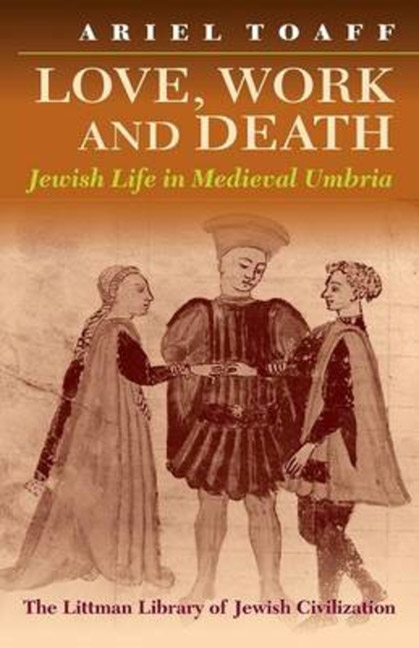Book contents
- Frontmatter
- Contents
- List of Figures
- List of Tables
- Abbreviations
- Note on Currency, Weights, and Measures
- Map showing Jewish settlements in Umbria
- Introduction
- 1 Sex, Love, and Marriage
- 2 Love of Life and Intimations of Mortality
- 3 Meat and Wine
- 4 The House of Prayer
- 5 Outcasts from Society
- 6 Witchcraft, Black Magic, and Ritual Murder
- 7 Converts and Apostates
- 8 The Pattern of Discrimination
- 9 Merchants and Craftsmen
- 10 Doctors and Surgeons
- 11 Banks and Bankers
- Bibliography
- Index
10 - Doctors and Surgeons
- Frontmatter
- Contents
- List of Figures
- List of Tables
- Abbreviations
- Note on Currency, Weights, and Measures
- Map showing Jewish settlements in Umbria
- Introduction
- 1 Sex, Love, and Marriage
- 2 Love of Life and Intimations of Mortality
- 3 Meat and Wine
- 4 The House of Prayer
- 5 Outcasts from Society
- 6 Witchcraft, Black Magic, and Ritual Murder
- 7 Converts and Apostates
- 8 The Pattern of Discrimination
- 9 Merchants and Craftsmen
- 10 Doctors and Surgeons
- 11 Banks and Bankers
- Bibliography
- Index
Summary
THE QUEST FOR THE MEDICAL CONTRACT
FROM the mid-fourteenth century until the second half of the fifteenth, every Umbrian commune of any importance is documented as employing one Jewish doctor, or indeed several. From Trevi to Amelia, from Spello to Montone, from Spoleto to Citta di Castello, from Assisi to Foligno, from Fratta to Nami, from Temi to Perugia, public records, notarial deeds, and contracts in Hebrew or Latin, all bear witness to the presence and activity of a host of Jewish doctors, hired by the communes to treat the people of any given town and contado. The practice appears to have been widespread throughout Italy, and its roots are to be sought less in the supposed Jewish penchant for medical studies than in the fact that such studies were virtually the only ones to which Jews had access in the Italian universities of the time. Furthermore, the privileges and prestige which often accompanied the medical profession constituted an appreciable attraction for Jews in search of a social standing that might exempt them from the restrictions that went with their identity. Such advantages included above all the right of citizenship, with its attendant privileges, primarily that of being able to acquire property and enter it in the town's land register; exemption from payment of city tributes and special taxes, authorization to carry defensive weapons; and dispensation from wearing the distinctive badge. In special cases it might bring with it the right to teach in the city university, a privilege enjoyed, for example, by Musetto di Guglielmo, professor of medicine at the University of Perugia from 1413 to 1417. Several years earlier the rulers of the city had solemnly granted him the right of citizenship, further extended to his family and descendants with the following flattering justification: ‘since maestro Musetto the Jew, living in the city of Perugia, is a courteous and upright person, and a doctor highly versed in the art of surgery, who practises his profession to the benefit of all citizens, prescribing ‘excellent and effective measures and treatments which have earned him fame and well-deserved credit, we see fit to admit him to enjoyment of the privileges of Perugian citizenship.’
- Type
- Chapter
- Information
- Love, Work, and DeathJewish Life in Medieval Umbria, pp. 215 - 233Publisher: Liverpool University PressPrint publication year: 1996



